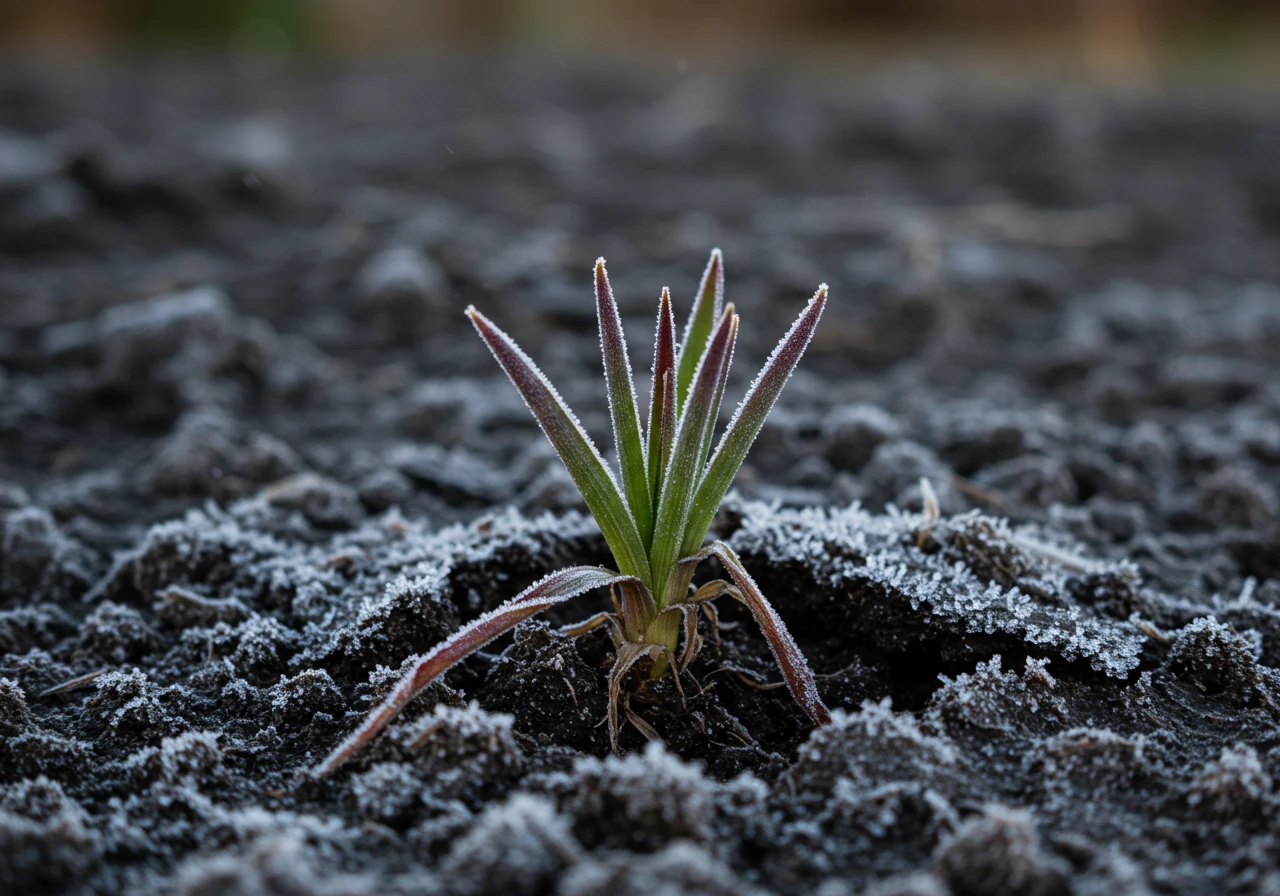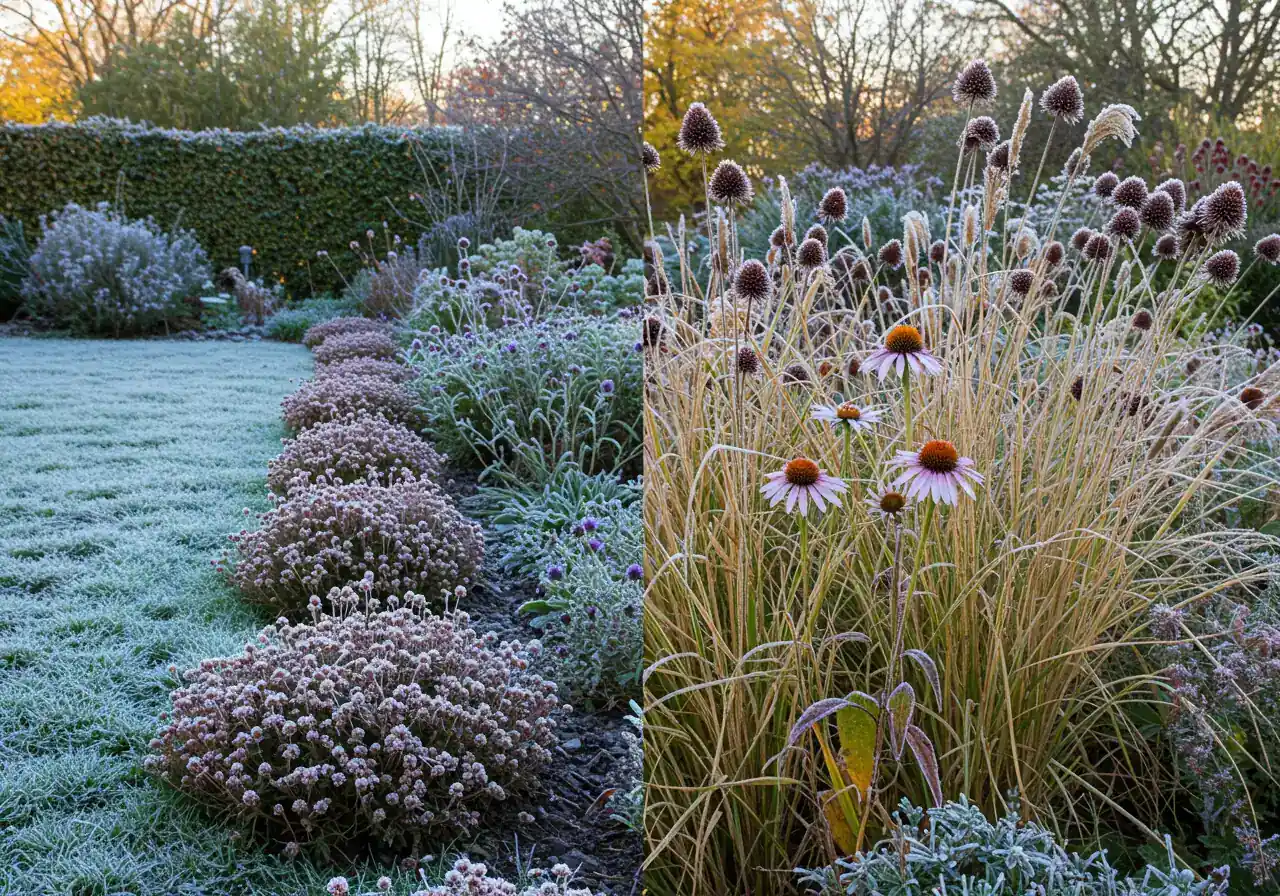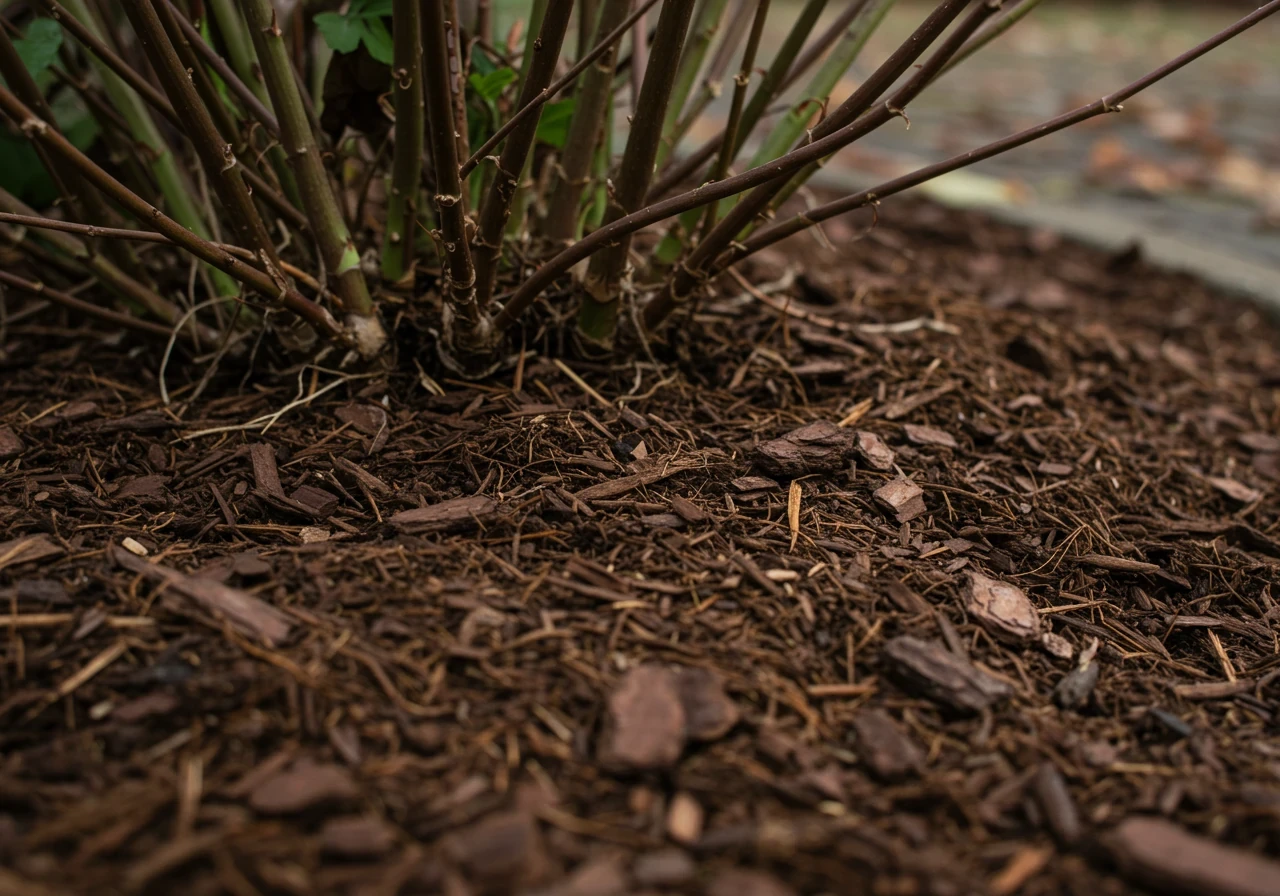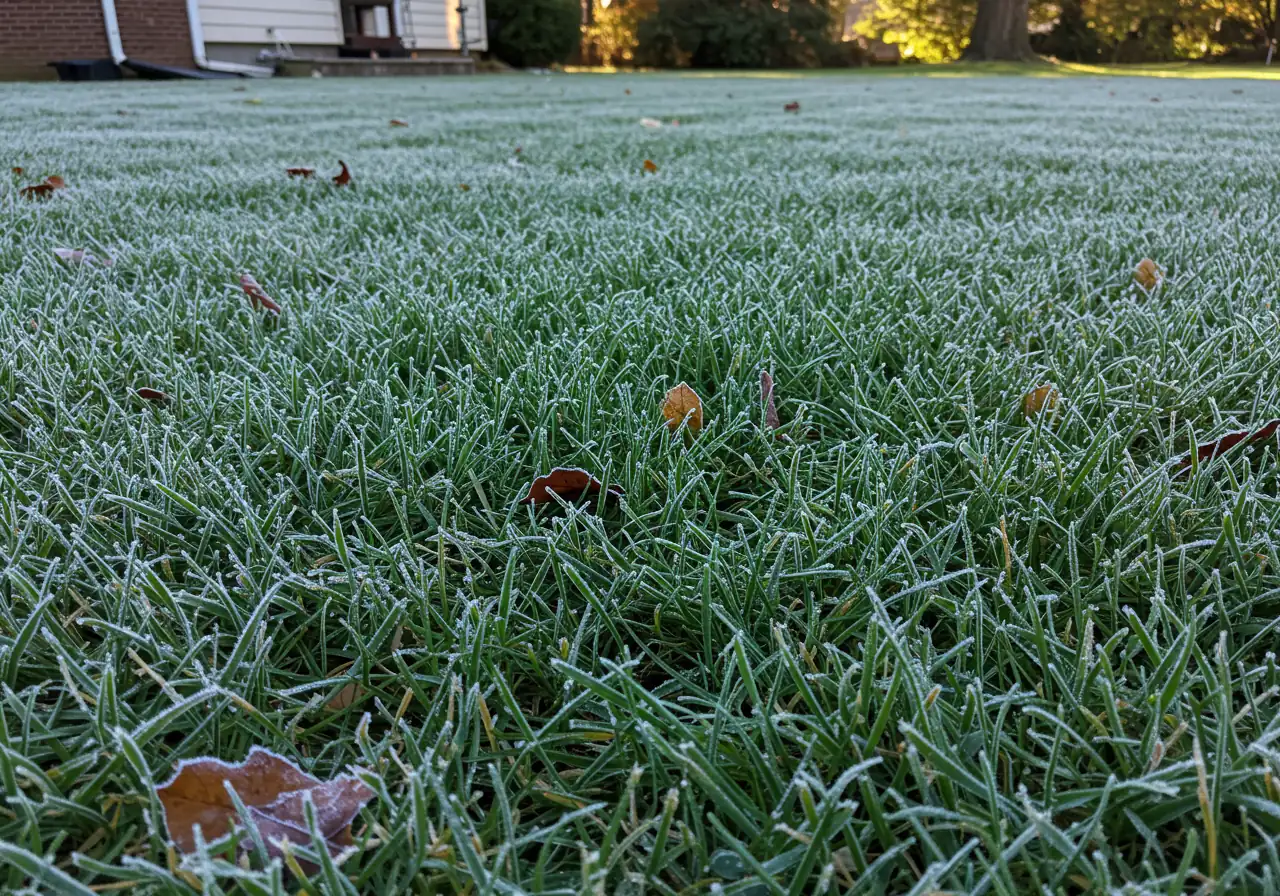Russell Homes: Fall Garden Check Prevents Winter Kill
Worried about winter damage to your Russell garden? Get expert help with your fall cleanup and preparation. Request your free estimate today!
Quick Summary: Protect Your Russell Garden This Fall
- Why Prep Matters: Prevent "winter kill" from Ottawa's harsh freezes, winds, and thaws.
- Key Tasks: Clean up dead plants, manage leaves, protect vulnerable shrubs/trees, apply mulch, and perform final lawn care.
- Benefits: Ensures plants survive winter, promotes vibrant spring growth, saves time and money later.
Introduction: Brrr-ace Yourselves! Why Fall Prep is Key for Russell Gardens
Alright folks, let's talk about the inevitable – Old Man Winter is warming up in the bullpen, and soon he'll be throwing frosty fastballs right at our Russell gardens! Before you retreat indoors with a mug of something warm, there's some important *landscaping* work to do. Ever heard of *winter kill*? It sounds dramatic (and frankly, it can be for your plants!), but it's what happens when delicate roots, stems, or buds get zapped by *Ottawa's* famously harsh freezes, icy winds, and unpredictable thaws. Learn more about keeping your Ottawa yard healthy year-round with our Ottawa Yard Cleanup Service.
Homeowners in *Russell*, and neighbouring areas like *Embrun* and *Metcalfe*, know our winters don't mess around. Ignoring *fall garden preparation* is like sending your precious perennials, shrubs, and even parts of your lawn into battle without armour. This isn't just about tidying up; it's about actively protecting your beautiful yard and *gardening* investments from damage. Proper prep helps ensure everything bounces back strong and vibrant next spring, saving you heartache and money. Consider seeing some amazing spring results in our Gallery or recent Transformations. So, let's dive into the essential *fall gardening* tasks to get your green spaces ready to face the chill!
Decoding Winter Kill: What Really Happens to Your Garden When Ottawa Freezes Over

Okay, let's pull back the frosty curtain on "winter kill." It sounds harsh, and honestly, for our *Ottawa* gardens, it sometimes can be! Think of it as the collection of challenges that Mother Nature throws at your plants during our long, cold winters. It’s not usually one single thing, but a gang of wintery woes teaming up against your beloved *perennials*, *shrubs*, and even patches of your *lawn*. Understanding these sneaky culprits is the first step to protecting your green investments. You can read more about assessing potential issues in our guide to the Russell Garden Vitality Check for Fall Plant Loss.
So, what are these garden party crashers?
- The Freeze-Thaw Fiasco: *Ottawa's* weather loves to play ping-pong with temperatures, right? One day it's frozen solid, the next it's mild enough for a slushy puddle. This constant freezing and thawing makes the water in the soil expand and contract, like a slow-motion jackhammer. This can heave tender roots right out of the ground or snap them underground. Consistent snow cover actually helps prevent this, acting like a cozy blanket. Information on regional climate impacts can be found via resources like the Canadian Plant Hardiness Zones map.
- Desiccation (A Fancy Word for Drying Out): You might think plants don't need water when dormant, but winter winds and sun can suck moisture right out of leaves and stems, especially on evergreens. When the ground is frozen solid, the roots can't slurp up any water to replace what's lost. It's like being thirsty with a frozen straw! This is a major player in winter kill.
- Frost Heave Havoc: This is closely related to the freeze-thaw cycle but deserves its own mention. As the ground freezes and expands, it can literally push smaller plants, especially newly planted ones or those in heavier clay soils (looking at you, parts of *Barrhaven* and *Nepean*!), up out of the earth, exposing their roots to deadly cold and drying winds. Proper Mulching and Edging helps keep soil temperatures more stable. Dealing with challenging soil? Using the right tools makes a difference, like those discussed in our guide to Russell Ergonomic Gardening Tools for Clay Soil.
- Salt Assault: We need salt for safe roads and sidewalks, but it's terrible news for plants. Salt spray from plows or runoff from driveways can land on plants or seep into the soil, burning foliage and damaging roots. Plants near roadsides or walkways are most at risk. Even areas near your hardscaping, like patios perhaps detailed in our Russell Outdoor Kitchen Summer-Ready Tips, can see nearby plants suffer from salt splash if you're de-icing close by.
- Snow and Ice Overload: While snow cover is often protective, heavy, wet snow or ice storms can physically break branches on trees and shrubs. Pruning weak or damaged branches in the fall can help prevent some of this breakage.
Our region sits mostly in Canadian Plant Hardiness Zone 5a, meaning plants rated for this zone *should* survive our typical minimum winter temperatures. However, factors like soil type (sandy soils in areas like *Greely* or *Osgoode* drain faster and might lead to more drying, while clay holds moisture but can worsen heave), wind exposure, and those pesky freeze-thaw cycles can make survival tricky even for hardy plants. A healthy plant going into winter is always more resilient; that’s why a fall check-up, like the one mentioned in our Russell Garden Vitality Check for Fall Plant Loss, is so important. Keeping your lawn healthy is also key; check out some ideas in the Secrets to Perfect Russell Lawn Care: Your Ultimate Guide.
Understanding these challenges helps you prepare your *landscaping* more effectively. Proper fall cleanup and preparation are your best defenses. If tackling the garden chores seems overwhelming, exploring professional Gardening and Landscaping Services can be a great help. Getting your garden beds ready with a service like the Russell Garden Clean Up Service sets the stage for healthier plants come spring.
Common Winter Garden Problems in Ottawa
Freeze-thaw cycles causing root heave, desiccation (drying out) of evergreens, salt damage near walkways/roads, and physical breakage from heavy snow or ice are the most frequent culprits behind winter kill in our region.
Key Protective Fall Actions
Applying mulch, using burlap screens for sensitive shrubs, proper pruning, ensuring good drainage, and careful final lawn mowing are essential steps. Learn more about our approach to Material Selection for mulch and other needs.
Understanding Plant Hardiness (Zone 5a)
While Zone 5a indicates average minimum temperatures plants can tolerate (-28.9°C to -26.1°C), microclimates, wind exposure, soil type, and winter moisture levels significantly impact actual plant survival. Choose hardy varieties and provide protection for borderline plants.
The Great Fall Cleanup: Tidying Up Your Russell Garden for Winter

Alright, let's roll up our sleeves for the grand finale of the *gardening* season – the big fall cleanup! Think of it as tucking your *Russell* garden into bed for its long winter nap. Doing this work now makes a world of difference for a healthy start next spring, preventing diseases and grumpy, frozen plants. Timing is key here; we want to get most of this done *after* the first few light frosts have nipped at your plants but *before* the ground freezes solid, which usually happens later in the fall here in *Ottawa*. Check out gardening tips from local groups like the Ottawa Horticultural Society for seasonal advice.
Here’s your step-by-step guide to getting it done:
- Perennial Power Down: Most *perennials* (the plants that come back year after year) benefit from being cut back in the fall. Once the foliage has yellowed or browned after a frost, trim stems down to a few inches above the ground. This removes dead material where pests or diseases might otherwise hang out over winter. *However*, don't go crazy with the clippers just yet! Some plants add lovely winter interest – think ornamental grasses swaying in the breeze or coneflower seed heads feeding the birds. You can leave those standing for visual appeal and wildlife support. If unsure, a quick search for your specific plant type usually helps! If the task feels daunting, remember professional help is available with a dedicated Russell Garden Clean Up Service.
- Annual Adieu: Unlike perennials, *annuals* complete their life cycle in one season. Frost marks the end of their show. Pull these plants out entirely, roots and all. Don't leave decaying annuals in the beds, as this can invite disease problems next year. Toss them onto the compost pile (unless they were diseased – then put them in the garbage).
- Leaf Management Mania: Ah, the leaves! They’re beautiful, but they can smother your lawn if left in a thick mat. Raking is the classic approach. But wait! Don't just bag them all up. Fallen leaves are *gardening* gold! You can shred them with a lawn mower (go over the pile a few times) and use them as a natural *mulch* on your garden beds. This adds organic matter, insulates roots, and helps retain moisture – it’s a fantastic, eco-friendly option popular in leafy areas like *Manotick* or *Richmond*. Alternatively, add them to your compost bin. If you're drowning in leaves, city collection is an option (check the City of Ottawa Leaf and Yard Waste schedule), or consider professional leaf removal as part of a broader Ottawa Garden Clean Up Service. This kind of thorough cleanup can lead to amazing garden Transformations come springtime.
- Tool Time TLC: Don't just toss your shovels, pruners, and trowels into the shed! Clean off any dirt and mud (an old brush works wonders). Sharpen blades on pruners and shears. Wipe metal parts with an oily rag to prevent rust over the damp winter months. Taking care of your *tools* now means they'll be ready to go when spring fever hits! For those considering hiring help for larger tasks, you might want to review the typical service scope outlined in the Terms and Conditions.
Taking these steps helps protect your *landscaping* investment and sets the stage for a vibrant return next year. Whether you're in Russell, nearby *Metcalfe* needing a Metcalf Garden Clean Up Service, or require a Marionville Yard Cleanup Service, a tidy fall garden is a happy garden waiting for spring!
Tuck 'Em In Tight: Protecting Vulnerable Plants from Ottawa's Chill


Okay, garden warriors, you’ve tidied up, but now it's time for the *real* mission: protecting the VIPs (Very Important Plants) of your yard from *Ottawa’s* signature winter chill. Some plants are tougher than old boots, but others need a little extra TLC to survive the frost, snow, and wind. Think of it as putting their winter pyjamas on! Here’s how to tuck 'em in tight:
1. Mulch Magic: The Cozy Blanket
Mulch isn't just for looks; it's a superhero cape for plant roots! A good layer of *mulch* (about 2-4 inches deep) acts like insulation, keeping the soil temperature more stable and preventing that nasty freeze-thaw cycle that can heave plants right out of the ground. It also helps retain moisture.
- What to Use: Shredded bark, straw, or even shredded leaves from your fall cleanup work great. If dealing with a mountain of leaves feels overwhelming, remember services like a thorough Marionville Yard Cleanup Service can manage leaf collection and prep your beds.
- How to Apply: Spread it evenly over the garden bed *after* the ground has started to cool down but before it freezes solid. *Important:* Keep mulch a couple of inches away from the stems of *shrubs* and *perennials* to prevent rot and discourage hungry critters from nesting too close. Explore options with our Mulching and Edging services.
2. Wrap 'Em Up: Burlap Blankies for Shrubs
Evergreens like cedars, yews, and some hollies can suffer from winter burn (desiccation – drying out) caused by harsh winds and winter sun when the ground is frozen. Young or newly planted *shrubs* are especially vulnerable.
- The Technique: Create a screen using burlap attached to wooden stakes placed around the plant (don't wrap the burlap tightly *directly* on the plant, as this can trap moisture and cause damage). Leave the top open for air circulation. This shields them from wind and sun. Setting up these kinds of protective barriers can be part of a comprehensive fall prep; some folks even get help with larger tasks through a full Marionville Property Cleanup Service that prepares the whole yard for winter.
3. Rose Rituals: Saving Tender Beauties
Many hardy *Ottawa* roses do just fine, but tender types like hybrid teas often need extra protection.
- Mounding: After the first hard frost and you've done your final *garden* trimming (perhaps as part of a dedicated Marionville Garden Clean Up Service), mound loose soil, compost, or triple mix around the base of the rose, about 10-12 inches high. This protects the graft union (the knobby bit where the rose variety is joined to the rootstock).
- Rose Cones: Styrofoam cones are another option, but use them carefully. Cut ventilation holes in the top to prevent heat buildup on sunny winter days, which can trick the plant into thinking it's spring too early. Fill the cone loosely with straw or leaves before placing it over the mounded rose.
4. Guard the Trunks: Preventing Critter Calamities
Young trees, especially fruit trees, have thin bark that looks like a five-star meal to rabbits and mice during lean winter months. Sunscald (bark splitting from temperature fluctuations) can also be an issue.
- The Solution: Wrap the lower trunk with plastic tree guards or mesh hardware cloth. Make sure the guard extends above the expected snow line and has a little space between it and the bark. Install these in late fall and remove them promptly in spring.
5. Salt Savvy: Defending Against De-Icers
If your garden beds border driveways or roads, especially in busy areas of *Nepean* or along routes through communities like *Kars*, road salt is a major winter menace. Salt spray burns foliage, and runoff poisons the soil.
- Barrier Tactics: Setting up a temporary burlap screen (similar to wrapping shrubs, but placed along the edge of the bed) can block a lot of salt spray.
- Plant Choices: If possible, plant salt-tolerant species in these vulnerable areas. You can ask for advice on suitable plants from local experts like the Master Gardeners of Ottawa-Carleton.
- Flush in Spring: Give the affected soil a good soaking in early spring to help flush away accumulated salts.
Taking these protective steps might seem like extra work now, but it’s a smart investment in your *landscaping*. You're giving your plants their best shot at surviving *Ottawa's* winter and bouncing back beautifully next spring. If tackling these tasks feels like too much, don't hesitate to reach out for professional help. You can learn more About Us and our commitment to healthy yards. Ready to get your vulnerable plants protected? Feel free to Book Your Estimate with us today. Getting this done now means less worry later, and we bet you’ll feel a sense of accomplishment when spring returns – maybe even enough to celebrate on our Thank You page! Providing feedback helps us improve, consider sharing your experience on our Estimate Feedback page or check out our Google profile: CleanYards.ca on Google.
Winter Survival Rates (Estimated with Proper Fall Prep)
Don't Forget the Green Carpet: Fall Lawn Care for Winter Resilience

Hey neighbours! While we're busy tucking our garden beds in and wrapping up delicate shrubs, let's not forget the biggest plant in our yard – the lawn! Your grass might look like it’s winding down for the season, but giving your "green carpet" some essential fall *landscaping* love is crucial for surviving *Ottawa's* winter wonderland (or sometimes, wasteland!) and bouncing back lush and green next spring. Think of it as sending your lawn to a winter spa retreat! Our Lawn Care services cover seasonal needs.
First up: the final haircut. For the last mow of the season, usually sometime in late October or early November before the first lasting snowfall, aim for a height of about 2.5 to 3 inches. Don't scalp it down to the soil, as this exposes the sensitive crown of the grass plant to frost damage. But don't leave it like a shaggy throw rug either! Grass left too long can become matted under snow, creating a cozy haven for snow mold diseases. Finding that happy medium is key.
Next, let's talk about dinner! Applying a winterizer fertilizer in late fall (typically after growth has slowed way down, often after the last mow but before the ground freezes solid) is like packing your lawn a nutrient-dense lunchbox to survive the winter. This special fall *lawn food* is usually lower in nitrogen (for less top growth) and higher in potassium, which is fantastic for strengthening roots and increasing tolerance to cold stress. Healthy roots tucked safely in the *soil* are the secret weapon for a vigorous spring comeback.
Is your lawn feeling a bit stressed or compacted after a summer of backyard barbecues and fun? Heavy foot traffic or a thick layer of thatch (dead grass stems and roots) can prevent water, air, and nutrients from reaching the soil. This is particularly common in areas with heavier clay soil, sometimes found in parts of *Barrhaven* or *Nepean*. While core aeration (pulling out small plugs of soil) or dethatching is often best done a bit earlier in the fall, if you missed it and your lawn seems compacted, it's worth keeping in mind for next year. Good airflow and drainage are vital. Really understanding proper Soil Preparation for Healthy Lawns can make a huge difference in your lawn's overall resilience.
Leaf patrol is mandatory! We love fall colours, but a thick blanket of leaves left on the lawn over winter is bad news. It smothers the grass, blocks sunlight, and traps moisture – basically rolling out the welcome mat for snow mold and other fungal problems. Rake them up, shred them with your lawnmower to add to your compost or garden beds (as mentioned in garden cleanup!), or if you're facing a leaf avalanche, professional help is always an option. A thorough fall cleanup ensures your entire property is ready. Many homeowners rely on an Ottawa Yard Cleanup Service to handle the big jobs. For instance, folks needing assistance in the *Metcalfe* area can look into a dedicated Metcalf Property Cleanup Service to get their lawns and yards winter-ready.
Taking these simple steps – the right final mow, a good fall feeding, ensuring the soil can breathe, and keeping it clear of leaf litter – dramatically reduces the risk of winter damage. Come springtime, while others might be dealing with patchy, struggling turf, you’ll be admiring your healthy green carpet. It sets the perfect stage for any future landscaping plans, like dreaming up beautiful Garden Bed Installation projects. Trust us, when you see that gorgeous lawn next spring, your future self will definitely want to visit our Thank You page for putting in the effort now!
Quick Wins: Your Fall Garden Check Highlight Reel
Tidy Up Time
Clear out dead annuals & veggies. Trim back *most* perennials. Need help? Consider the Metcalf Yard Cleanup Service.
Leaf Patrol Power Move
Rake leaves off the lawn. Shred for garden *mulch* or compost. Ensure proper Property Clean Up.
Mulch is Your Friend
Spread 2-4 inches of organic mulch after ground cools. See Material Selection Tips.
Lawn Last Call
Final mow (2.5-3 inches). Apply winterizer fertilizer. Considering new turf next year? Look into Expert Sod Installation Services.
Protect the Precious
Wrap tender shrubs with burlap. Use tree guards on young trees. Got questions? Contact Us for Advice. Your privacy is protected per our Privacy Policy.
Key Takeaways: Focus on cleanup, leaf removal, mulching, lawn care, and protecting vulnerable plants before the ground freezes solid. These steps are crucial for minimizing winter damage in Russell and surrounding Ottawa areas.
FAQs: Your Ottawa Fall Garden Questions Answered
When is the absolute *best* time to do fall cleanup in Ottawa?
Aim for late September through October, after the first few light frosts but *before* the ground freezes solid (usually by mid-November). This gives plants time to wind down but avoids working in frozen muck! Tackle leaves as they fall, but save major perennial cutbacks until their tops yellow or brown. Getting a thorough fall property clean-up done during this window sets your yard up perfectly for winter.
Should I leave *any* leaves on my lawn over winter?
Nope, not really! A thick layer smothers grass and invites snow mold. It's best to rake or mulch-mow them *off* the lawn. Shredded leaves make fantastic *mulch* for your garden beds, though! Keeping the lawn clear is a key part of proper fall lawn care that helps ensure a healthy green return in spring.
Do I *really* need to cut back all my perennials in places like Nepean?
Not necessarily all of them! Cut back plants with diseased foliage (like peonies with powdery mildew) or floppy stems that'll turn to mush. But leave sturdy stems like ornamental grasses or coneflowers standing. They add winter interest and provide food/shelter for wildlife. Good selective trimming is part of smart expert garden maintenance practices for areas like Nepean.
My soil is heavy clay (like in parts of Barrhaven). Does that change my fall prep?
Yes, slightly! Clay soil holds moisture, which increases the risk of frost heave pushing plants up. Ensure good drainage where possible. *Mulching* is extra important to moderate soil temperature swings. Avoid walking on soggy clay soil in late fall to prevent compaction. Amending with compost during cleanup also helps improve structure over time in heavy *Barrhaven* soil.
Is it too late to plant bulbs in Ottawa in late October/early November?
You're probably still okay! As long as the ground isn't frozen solid, you can plant spring-blooming bulbs like tulips and daffodils. They need the winter chill to bloom properly. Planting them now gives roots just enough time to establish before the deep freeze hits *Ottawa*. Just don't wait until the ground is rock hard!
What's the easiest way to manage all the fall yard waste?
Compost as much as you can – leaves and disease-free plant bits are garden gold! Utilize Ottawa's green bin program for the rest. If the volume is overwhelming, consider hiring a professional Ottawa property cleanup service. Many services offer easy scheduling, sometimes even through a convenient customer portal, making the whole process hassle-free.
Conclusion: Set Your Russell Garden Up for Spring Success!
Phew! We've covered a lot of ground, haven't we? From wrestling leaves to tucking in tender plants, putting in that fall *gardening* effort now is your secret weapon against *Ottawa's* notorious winter. Think of it as future-proofing your beautiful *Russell* yard! Homeowners from *Metcalfe* to *Kars* know that a little prep goes a long way in preventing winter damage and ensuring your *landscaping* investment thrives, rather than just survives. For services beyond Russell, check our pages for Metcalf Property Cleanup Service or Marionville Property Cleanup Service.
Taking these steps means less frantic work come springtime (more time for coffee on the patio, right?), healthier, happier plants ready to burst with colour, and avoiding the sad sight of winter kill. You're not just tidying up; you're actively setting the stage for a vibrant, flourishing garden next year. Your future self, basking in that gorgeous spring view, will totally thank you for not procrastinating!
Feeling like your fall to-do list is longer than a *Russell* winter? We get it! *Let us lend a hand with your fall cleanup and winter prep – visit CleanYards.ca today to explore our services and book your free estimate.* Want more tips to keep your yard looking great year-round? *Follow our journey and grab seasonal advice by connecting with us on social media!*
Get those gardens tucked in, folks! Here’s to surviving the freeze and celebrating a spectacular spring bloom!

